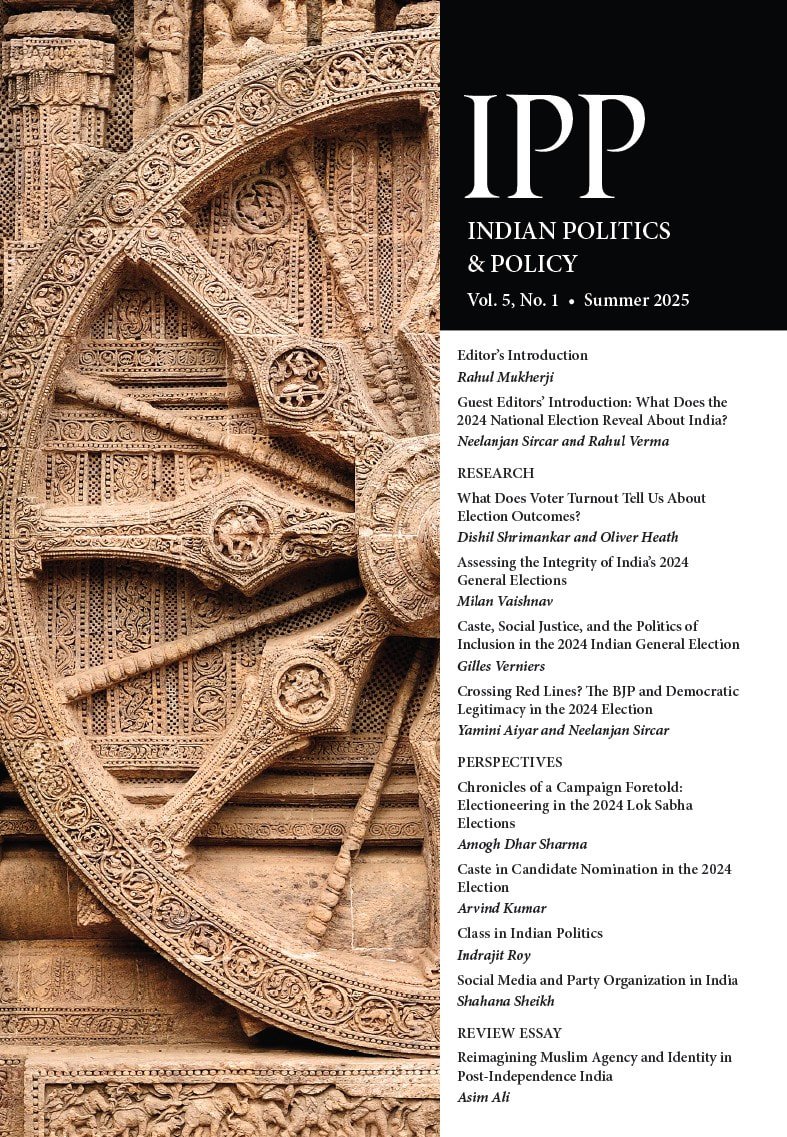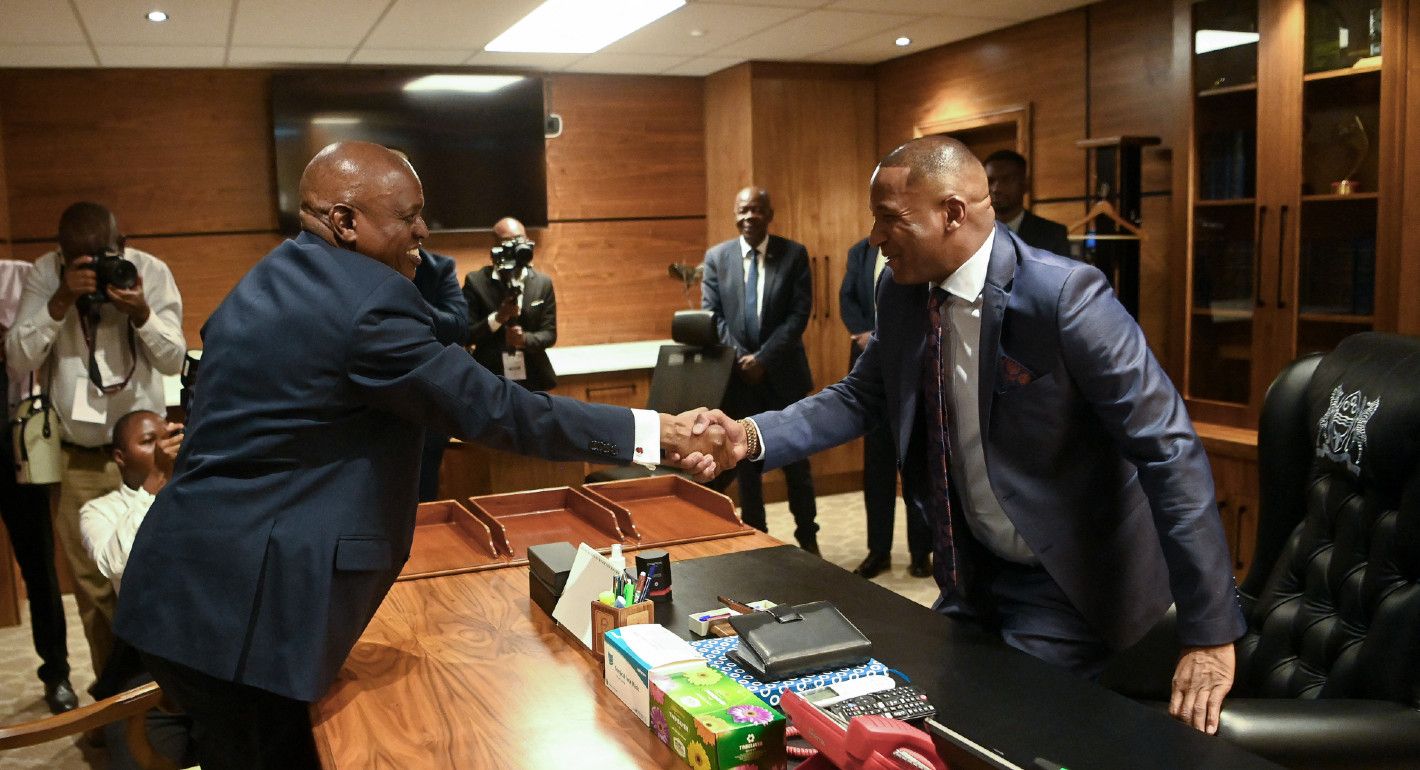
Carnegie Democracy
@CarnegieDCG
The Democracy, Conflict, and Governance Program @CarnegieEndow examines global democracy, conflict and governance issues. RT ≠ endorsement.
"Public opinion alone will not safeguard the courts," writes @AOD_PhD. "But broad societal mobilization can." Read his full piece for @lawfare👇lawfaremedia.org/article/public…
Public opinion won't protect the judiciary from executive overreach, argues @AOD_PhD. What, then, is more reliable for defending the courts? Read his full piece for @lawfare👇 lawfaremedia.org/article/public…
🆕| In recent years, there is growing concern that the integrity of electoral processes in India has atrophied. @MilanV examines the emerging threats to India's electoral integrity in his latest for @PolicyStudies's "India Politics and Policy"👇 ippjournal.org/assessing-the-…

Pleased to contribute to this special issue of "Indian Politics & Policy" on the 2024 Lok Sabha election, curated and edited by @NeelanjanSircar & @rahul_tverma ippjournal.org/volume-5-numbe…
Pleased to serve as a special editor alongside @rahul_tverma for an issue on the 2024 national election for Indian Politics & Policy. In the issue, we seek to interrogate how the results shift our theoretical understanding of Indian politics. Issue: ippjournal.org/volume-5-numbe…
In their piece for @CarnegieEndow, @RBarrettTaylor & Gavin Wilde argue that the conduct of war has increasingly become a fight with a one-dimensional, digital representation of the enemy. Read their full analysis here⤵️ carnegieendowment.org/research/2025/…

The world is experiencing 3 fundamental shifts that threaten digital democracy, social innovation, and international relations. Addressing these shifts requires more than rhetoric—it demands deliberate action, argues @gbengasesan for @CarnegieEndow👇 carnegieendowment.org/research/2025/…

Trump has ended—or at least paused—the U.S. policy of strategic altruism towards India. Now, it is New Delhi that must embrace delayed reciprocity from the U.S. @MilanV argues for @ForeignAffairs👇 foreignaffairs.com/south-asia/how…

"The disruption...roiling the field of international democracy support is occurring within an international political context in which democracy is increasingly contested," Thomas Carothers, @RachelKleinfeld & @YoungsRichard explain. Read the full paper👇 carnegieendowment.org/research/2025/…

"Even though gracious concessions are not panaceas, admitting electoral loss and enabling a smooth handover is a powerful democratic norm worth supporting." Frances Z. Brown & Margot Treadwell argue for @CarnegieEndow⤵️ carnegieendowment.org/research/2025/…

"Conspiratorial thinking doesn't make people violent," writes Dalya Berkowitz. "Instead, it directs violent people towards particular targets...like Jews, Muslims, and the LGBTQ+ community." Read her full piece for @fulcrum_us👇 thefulcrum.us/ethics-leaders…

From Uganda to Nigeria, activists have pushed back against threats to protests, nonprofits, and free speech. What can U.S. civil society learn from their success? We unpacked three global strategies, based on work by @CarnegieDCG's Saskia Brechenmacher: youtube.com/watch?v=dMbwFt…
“Some Indian strategists rightly worry that it takes a dangerous leap of faith to bet on the United States returning to moderation in 2028. But the alternative—strategic estrangement—could come at an even greater cost.” foreignaffairs.com/south-asia/how…
🆕| The shrinking of civic space, the decline in digital funding, and the erosion of legitimacy are not just abstract concerns—they are existential threats to the future of democracy. Read @gbengasesan's latest for @CarnegieEndow⤵️ carnegieendowment.org/research/2025/…

🆕| To preserve the partnership between the U.S. and India, it is now New Delhi—not Washington—that must practice strategic altruism, argues @MilanV. Read his latest essay for @ForeignAffairs👇 foreignaffairs.com/south-asia/how…

In a new @ForeignAffairs essay, I argue that Washington’s era of “strategic altruism” toward India is over. Now, in a more uncertain world, it is India that must take the long view—and extend strategic altruism toward the United States foreignaffairs.com/guest-pass/red…
The current wave of disruption against international democracy support is forcing a painful but needed rethinking of the field. What might such a rethinking entail? Thomas Carothers, @RachelKleinfeld, & @YoungsRichard examine for @CarnegieEndow⤵️ carnegieendowment.org/research/2025/…

Is conspiratorial thinking truly on the rise in the United States? Research suggests not, writes Dalya Berkowitz. What is rising, however, is the correlation between political violence and conspiratorial thinking. Read her full piece for @fulcrum_us👇 thefulcrum.us/ethics-leaders…

1/ Excited to release this new paper by @pstanpolitics on the interaction between great power relations and domestic politics in South Asia. Paul asks a big Q: How and why do domestic actors in Asia mobilize external major power rivalry in their own internal politics?